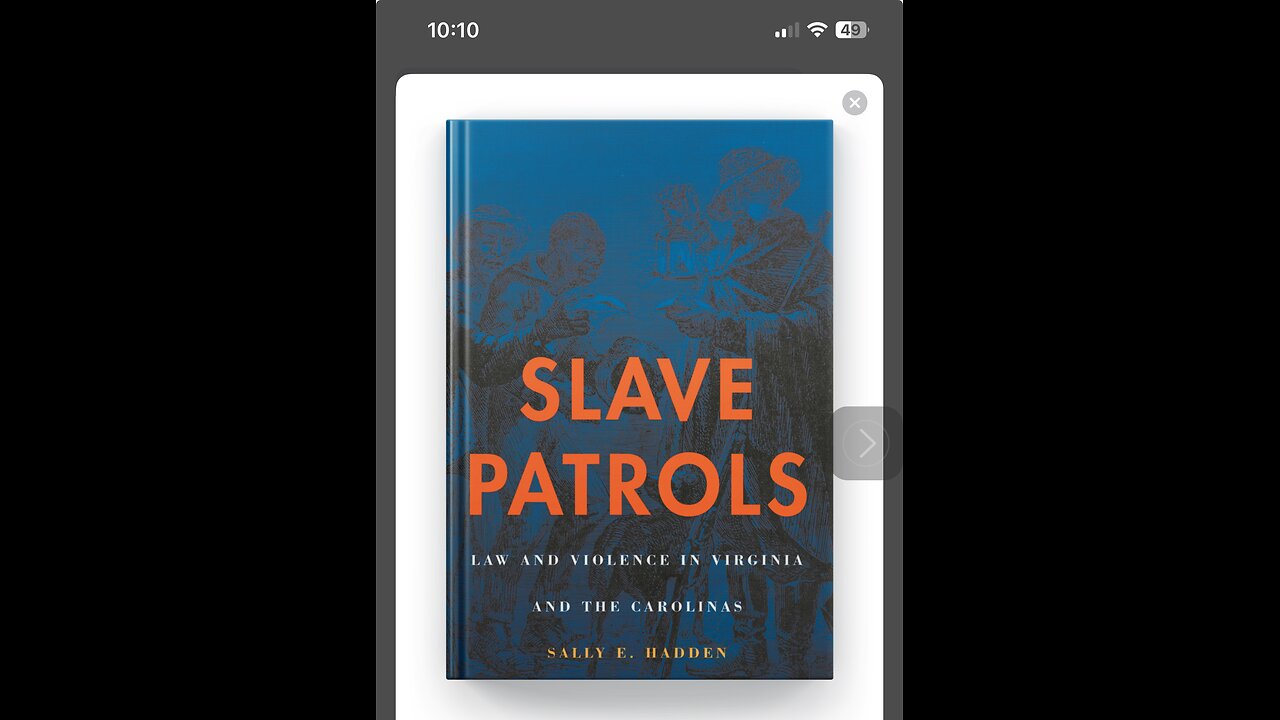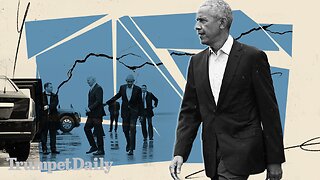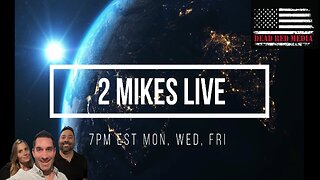Premium Only Content

Educational Purposes Only - Did you know 1st Private Prison build in America was in 1984!
#servitude #involuntaryservitude #freedom #slavery #DredScottv.Sandford
The U.S. Constitution The highest law in the United States is the U.S. Constitution. No state or federal law may contradict any provision in the Constitution. In a sense the federal Constitution is a collection of inviolable statutes. It can be altered only by amendment. Amendments pass after they are approved by two-thirds of both houses of Congress or after petition by two-thirds of the state legislatures. Amendments are then ratified by three-fourths of the state legislatures or by conventions in three-fourths of the states. Upon ratification, the amendment becomes part of the Constitution. Beneath the federal Constitution lies a vast body of other laws, including federal statutes, treaties, court decisions, agency regulations, and executive orders, and state constitutions, statutes, court decisions, agency regulations, and executive orders. Statutes and Treaties After the federal Constitution, the highest laws are written laws, or statutes, passed by elected federal lawmakers. States have their own constitution and statutes. Federal laws generally involve matters that concern the entire country. State laws generally do not reach beyond the borders of the state. Under Article VI, Section 2, of the U.S. Constitution, federal laws have supremacy over state and local laws. This means that when a state or local law conflicts with a federal law, the federal law prevails.
Marbury v. Madison, a landmark U.S. Supreme Court case decided in 1803. This case is significant because it established the principle of judicial review, which allows the Supreme Court to declare an act of Congress unconstitutional.
Here’s a brief summary:
Background: In the final days of his presidency, John Adams appointed several Federalist supporters to judicial positions. However, some commissions, including William Marbury’s, were not delivered before Thomas Jefferson took office. Jefferson instructed his Secretary of State, James Madison, to withhold these commissions.
The Case: Marbury petitioned the Supreme Court to issue a writ of mandamus, compelling Madison to deliver his commission.
Decision: Chief Justice John Marshall ruled that while Marbury had a right to his commission, the Court could not issue the writ because the section of the Judiciary Act of 1789 that granted the Court this power was unconstitutional.
Impact: This decision established the judiciary’s role in reviewing the constitutionality of legislative and executive actions, significantly shaping the balance of power among the branches of the U.S. government.
In Dred Scott v. Sandford, 60 U.S. (19 How.) 393, 15 L. Ed. 691 (1857), the U.S. Supreme Court faced the divisive issue of Slavery. Chief Justice roger b. taney, a former slaveholder, authored the Court's opinion, holding that the U.S. Constitution permitted the unrestricted ownership of black slaves by white U.S. citizens. In a stunning 7–2 decision, the Court declared that slaves and emancipated blacks could not be full U.S. citizens. Any attempt by Congress to limit the spread of slavery in U.S. territories was held to be a direct violation of slave owners' due process rights.
SERVITUDE, civil law. A term which indicates the subjection of one person to another person, or of a person to a thing, or of a thing to a person, or of a thing to a thing.
2. Hence servitudes are divided into real, personal, and mixed. Lois des Bat. P. 1, c. 1.
3. A real or predial servitude is a charge laid on an estate for the use and utility of another estate belonging to another proprietor. Louis. Code, art. 643. When used without any adjunct, the word servitude means a real or predial servitude. Lois des Bat. P. 1, c. 1.
4. The subjection of one person to another is a purely personal servitude; if it exists in the right of property which a person exercises over another, it is slavery. When the subjection of one person to another is not slavery, it consists simply in the right of requiring of another what he is bound to do, or not to do; this right arises from all kinds of contracts or quasi con tracts. Lois des Bat. P. 1, c. 1, art. 1.
5. The subjection of persons to things or of things to persons, are mixed servitudes. Lois des Bat. P. 1, c. 1, art. 2.
6. Real servitudes are divided into rural and urban. Rural servitudes are those which are due by an estate to another estate, such as the right of passage over the serving estate, or that which owes the servitude, or to draw water from it, or to water cattle there, or to take coal, lime and wood from it, and the like. Urban servitudes are those which are established over a building fur the convenience of another, such as the right of resting the joists in the wall of the serving building, of opening windows which overlook the serving estate, and the like. Dict. de Jurisp. tit. Servitudes. See, generally, Lois des Bat. Part 1 Louis. Code, tit. 4; Code Civil, B. 2, tit. 4; This Dict. tit. Ancient Lights; Easements; Ways; Lalaure, Des Servitudes, passim.
Servitude - The state of a person who is subjected, voluntarily or involuntarily, to another person as a servant. A charge or burden resting upon one estate for the benefit or advantage of another.
Involuntary Servitude - which may be in the form of Slavery, peonage, or compulsory labor for debts, is prohibited by the Thirteenth Amendment to the U.S. Constitution. Article I, Section 9, of the original Constitution had given Congress the power to restrict the slave trade by the year 1808, which it did, but slavery itself was not prohibited until the Thirteenth Amendment was enacted in 1865. The slave trade had begun in the American colonies in the seventeenth century and involved the forcible taking and transport of Africans and others to sell as slaves. The Thirteenth Amendment's prohibition against slavery encompasses situations where an individual is compelled by force, coercion, or imprisonment, and against his will, to labor for another, whether he is paid or not.
Slavery; the condition of an individual who works for another individual against his or her will as a result of force, coercion, or imprisonment, regardless of whether the individual is paid for the labor.
The term involuntary servitude is used in reference to any type of slavery, peonage, or compulsory labor for the satisfaction of debts. Two essential elements of involuntary servitude are involuntariness, which is compulsion to act against one's will, and servitude, which is some form of labor for another. Imprisonment without forced labor is not involuntary servitude, nor is unpleasant labor when the only direct penalty for not performing it is the withholding of money or the loss of a job.
The importation of African slaves to the American colonies began in the seventeenth century. By the time of the American Revolution, the slave population had grown to more than five hundred thousand people, most concentrated in the southern colonies. The Framers of the U.S. Constitution did not specifically refer to slavery in the document they drafted in 1787, but they did afford protection to southern slaveholding states. They included provisions prohibiting Congress from outlawing the slave trade until 1808 and requiring the return of fugitive slaves.
Between 1820 and 1860, political and legal tensions over slavery steadily escalated. The U.S. Supreme Court attempted to resolve the legal status of African Americans in dred scott v. sandford, 60 U.S. (19 How.) 393, 15 L. Ed. 691 (1857). The Court concluded that Congress was powerless to extend the rights of U.S. citizenship to African Americans.
With the secession of southern states and the beginning of the Civil War in 1860 and 1861, the Union government was under almost complete control of free states. In 1865 Congress enacted the Thirteenth Amendment, which the Union states ratified. Section 1 of the amendment provides that "[n]either slavery nor involuntary servitude, except as a punishment for crime whereof the party shall have been duly convicted, shall exist within the United States, or any place subject to their jurisdiction." Section 2 gives Congress the authority to enforce the provisions of section 1.
The Thirteenth Amendment makes involuntary servitude unlawful whether the compulsion is by a government or by a private person. The penalty for violation of the amendment must be prescribed by law. Although the principal purpose of the amendment was to abolish African slavery, it also abolished other forms of compulsory labor similar to slavery, no matter what they are called. For example, it abolished bond service and peonage, forms of compulsory service based on a servant's indebtedness to a master.
An individual has a right to refuse or discontinue employment. No state can make the quitting of work a crime, or establish criminal sanctions that hold unwilling persons to a particular labor. A state may, however, withhold unemployment or other benefits from those who, without Just Cause, refuse to perform available gainful work.
Disclaimer
Under the First Amendment, we all have a right to disseminate opinions and information. Copyright disclaimer under Section 107 of the Copyright Act This video is for educational and entertainment purposes only. I do not own any of the clips or music used in this video. All rights belong to their respective owners. This video falls under the fair use doctrine of the U.S. Copyright Act of 1976, which allows for limited use of copyrighted material for purposes such as criticism, comment, news reporting, teaching, scholarship, and research.
Let love and light guide your way.
Pursuant to: 28 USC 1746(1)
8 U.S.C § § 1101(22)(B); (30); 1104(a)(1); 1408; 1503; 1182;
12 U.S.C § 531;
15 U.S.C 1; 2; 18a;
22 U.S.C § § 1741; 254d;
26 U.S.C § 6013(g);
28 U.S.C § 1746(1);
18 U.S.C § § 241; 242; 1001; 1621(2);
2 FAM 232.1-1
Non-Domestic/Non-Assumpsit
-
 LIVE
LIVE
Edge of Wonder
5 hours agoChristmas Mandela Effects, UFO Drone Updates & Holiday Government Shake-Ups
429 watching -
 1:37:36
1:37:36
Mally_Mouse
3 hours agoLet's Play!! -- Friends Friday!
20.1K -
 57:45
57:45
LFA TV
23 hours agoObama’s Fake World Comes Crashing Down | Trumpet Daily 12.20.24 7PM EST
15.8K5 -
 1:27:17
1:27:17
2 MIKES LIVE
2 hours ago2 MIKES LIVE #158 Government Shutdown Looms and Games!
17.5K7 -
 1:07:34
1:07:34
The Big Mig™
7 hours agoVeteran, Patriot, Leader, Author Allen West joins The Big Mig Show
20.8K7 -
 1:06:47
1:06:47
The Amber May Show
23 hours ago $0.77 earnedBloated CR Failed | What Did The View Say Now? | Who Kept Their Job At ABC| Isaac Hayes
11.1K -
 59:29
59:29
State of the Second Podcast
4 days agoAre We Losing the Fight for Gun Rights? (ft. XTech)
26.4K3 -
 1:00:10
1:00:10
The Nima Yamini Show
4 hours agoTragedy in Germany 🇩🇪 Suspected Terror Attack at Christmas Market – LIVE Updates from Germany
30.4K33 -
 10:52
10:52
Evenout
4 hours ago $0.95 earnedTIME TRAVELLING ON THE ESCALATOR TWIN PRANK!
16.4K3 -
 5:43:44
5:43:44
Scammer Payback
8 hours agoCalling Scammers Live
89.9K12